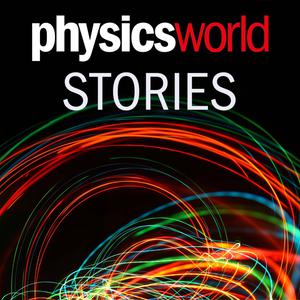
Physics World Stories Podcast
Physics World
Physics World Stories Podcast
- 51 minutes 58 seconds3 Body Problem: a deep dive into the Netflix show
This episode of Physics World Stories explores the science, politics and ethics in the Netflix series 3 Body Problem. Adapted from the celebrated Chinese novel The Three-Body Problem by Liu Cixin, the multi-layered story centres around humanity’s first contact with an alien civilization. As the drama unfolds, with physicists among its lead protagonists, the plot navigates the challenges of communicating with aliens across interstellar space – and the inevitable tensions that arise on Earth.
To discuss 3 Body Problem, podcast host Andrew Glester is joined by three special guests:
- Matt Kenzie: the series’ science adviser, a particle physicist at the University of Cambridge. Kenzie’s role in informing the show’s scientific elements gives him unparalleled insight into the integration of physics into its narrative.
- Jennifer Ouellette: a renowned science writer who reviewed Cixin’s book The Three-Body Problem for Physics World back in 2015. Ouellette shares her thoughts on the book’s themes, and assesses the merits of the TV adaptation by the creators of Game of Thrones.
- Hannah Little: a linguist at the University of Liverpool who is also a member of the SETI Post-Detection Hub. That initiative, based at the University of St Andrews in Scotland, considers how we should communicate with aliens should we discover we are not alone in the cosmos.
(Image courtesy: Ed Miller/Netflix)
30 April 2024, 9:58 am - 49 minutes 26 secondsAn orchestral trip through the moons of our solar system
This month’s episode of Physics World Stories features an interview with composer Amanda Lee Falkenberg with music from her The Moons Symphony. Her creation takes listeners on an epic journey through the science and stories of the moons of our solar system.
The seven-movement symphony dramatizes the geophysical features of Io, Europa, Titan, Enceladus, Miranda and Ganymede, before turning to our own Moon for a two-part finale. In creating the work, Australian-born Falkenberg immersed herself in the scientific research and consulted many scientists and astronauts.
The Moons Symphony performed by the London Symphony Orchestra is available now via Signum Records.
22 March 2024, 12:26 pm - 1 hour 2 minutesDark matter vs modified gravity: which team are you on?
Coke or Pepsi? Messi or Ronaldo? Taylor Swift or…well, without wanting to set the Swifties against Physics World, let’s just say there’s often a tribal element to who we support or the choices we make.
In the world of cosmology, one heated divide is whether you’re for dark matter or modified Newtonian dynamics (MOND). Both theories attempt to explain the discrepancies between the predicted gravitational effects in the universe and some of the actual observed motions of stars and galaxies.
In the latest episode of Physics World Stories, Andrew Glester speaks to two cosmologists on opposing sides of this debate. Stacy McGaugh from Case Western Reserve University in the US is a former dark-matter researcher who switched sides overnight after MOND successfully predicted the rotation velocities of stars in galaxies.
The other guest, Indranil Banik from the University of St Andrews in the UK, took the opposite journey. While working on a six-year project to measure MOND in wide binaries, he found no deviation from standard Newtonian gravity at all – a hammer blow for MOND. Now a dark matter advocate, Banik cites observations in our own solar system as further evidence against MOND. Naturally, others disagree.
For more detailed insight into this debate, see the recent Physics World feature “Cosmic combat: delving into the battle between dark matter and modified gravity“.
26 February 2024, 12:26 pm - 34 minutes 58 secondsRadio pioneers: the enduring role of ‘amateurs’ in radio astronomy
In the latest Physics World Stories podcast, astrophysicist Emma Chapman is in conversation with host Andrew Glester about the history of radio astronomy. It’s a field that has always maintained a do-it-yourself ethic, with valuable contributions from people outside the established academic community.
Chapman, an astrophysicist at the University of Nottingham in the UK is the author of the popular-science book First Light: Switching on Stars at the Dawn of Time. Alongside her research, Chapman regularly visits amateur radio astronomy clubs and admires the technical expertise she encounters among members.
Cold War boom
Using much of the same technology as radar, radio astronomy evolved rapidly in the post-war period and took on strategic importance during the Space Race. Indeed, the Lovell Telescope at the Jodrell Bank observatory in northern England was the only facility in the Western world that could track Sputnik 1, launched by the Soviet Union in 1957.
One reason that radio astronomy attracts public interest is that its facilities are ground-based: they’re tangible and accessible. Sites such as the Arecibo Observatory in Puerto Rico have iconic status in popular culture. That status looks set to grow thanks to the SKA Observatory being constructed at sites across Australia and South Africa – a truly global project, epic in scale.
- Chapman is the author of a Physics World feature about how the craft of doing radio astronomy has evolved since its origins.
23 January 2024, 10:36 am - 45 minutes 16 secondsRadiant chills: the revolutionary science of laser cooling
Over the past half century, laser cooling has revolutionized atomic, molecular and optical physics. Laser cooling of atoms and ions has enabled dramatic leaps in the precision of atomic clocks, allowing new tests of fundamental physics and potential improvements in clock-based navigation via the Global Positioning System. Now it is also laying the foundations for quantum computing with atoms and ions.
In this episode of Physics World Stories, you can enjoy a vibrant tour through the history of laser cooling with Chad Orzel, a popular-science author and researcher at Union College in the US, who is in conversation with Andrew Glester. Orzel describes the key research breakthroughs – which have led to several Nobel prizes – but also the personal stories behind the discoveries, involving physics titans such as Hal Metcalf, Bill Phillips and Steven Chu.
You can learn more about this topic via a trilology of features that Chad Orzel has written for Physics World. The final instalment will be available in January and you can already read the first two articles:
19 December 2023, 11:00 am - 40 minutes 30 secondsThe biographer who inspired Christopher Nolan’s blockbuster film Oppenheimer
This episode of the Physics World Stories podcast features an interview with Kai Bird, co-author of the book that inspired the recent blockbuster film Oppenheimer, directed by Christopher Nolan. Winner of the 2006 Pulitzer Prize in Biography, American Prometheus: the Triumph and Tragedy of J. Robert Oppenheimer is an exploration of the brilliant and enigmatic physicist who led the project to develop the world’s first atomic weapons.
Oppenheimer is a fascinating but complicated character for a biographer to tackle. Despite excelling in his leadership of the Manhattan Project, Oppenheimer’s conscience was torn by the power he had unleashed on the world. “Now I am become Death, the destroyer of worlds,” is the line he infamously recalled from the Hindu scripture the Bhagavad Gita, upon witnessing the Trinity Test fireball in 1945.
Parallels between the nuclear dawn and AI today
The physicist’s relationship with politics was also fraught and difficult to define. Oppenheimer held personal connections with Communist Party members prior to the Second World War, and spent the post-war years warning against nuclear proliferation – provoking the ire of McCarthy Era politicians and ultimately having his security clearance revoked in 1954.
Unsurprisingly, American Prometheus is receiving a resurgence of interest following the success of Nolan’s film. Readers are fascinated once again with the dawn of the nuclear age, which Bird says has parallels with where we are today with AI and the threat of climate change. He also sees the political threads from McCarthyism to the post-truth tactics and populist playbook deployed in US politics today.
As always, the podcast is presented by Andrew Glester and you can read his review of the film Oppenheimer, as well as a recent opinion piece by Robert P Crease “What the movie Oppenheimer can teach today’s politicians about scientific advice“.
21 November 2023, 6:22 pm - 40 minutes 18 secondsPhysics for fairness: tackling global sustainability challenges through science
This year, 2023, marks the half-way point to the 2030 deadline for achieving the 17 Sustainable Development Goals (SDGs). Recent global developments, including conflicts and the COVID-19 pandemic, make SDGs such as “Zero Hunger” and “Reduced Inequalities” seem more daunting than ever. The scale of the challenge is clear; but professionals working on the frontline of sustainable development are as committed as ever to enabling positive change.
That includes physicists and engineers, and July 2022 – July 2023 was the International Year of Basic Sciences for Sustainable Development. In this episode of the Physics World Stories podcast you will hear from with two physical scientists whose careers enable them to apply their scientific knowledge to tackling inequities. As always, the episode is hosted by Andrew Glester.
Ruhi Chitre is an intern at UNESCO, Paris, who was previously president of the International Association of Physics Students. Chitre believes that international policymaking can be strengthened by the contribution of more people with backgrounds in fundamental science, not least because they have a nuanced understanding of the concept of risk.
Later in the episode, you will hear from Destenie Nock, a civil & environmental engineer at Carnegie Mellon University in the US. Nock’s research includes looking for patterns in energy usage that can reveal local inequalities, such as correlations between household incomes and use of heating in winter. In her teaching, Nock encourages her students to take engineering back to its fundamental purpose – to think about how innovation can improve livelihoods.
Nock is among the invited speakers at Environmental Research 2023, a series of free-to-attend virtual events on 16 October – 23 November hosted by IOP Publishing (which publishes Physics World).
13 October 2023, 10:00 am - 57 minutes 38 secondsGreen and novel: the future of energy generation
Energy accounts for more than three-quarters of our greenhouse gas emissions globally each year. That’s not surprising, given the role of energy in almost every aspect of modern life. To stand any chance of hitting net zero climate targets, we need to accelerate the transition to greener forms of energy generation.
In this episode of the Physics World Stories podcast, Andrew Glester explores two novel forms of renewable-energy generation, both with the potential to scale and not suffer from issues of intermittency.
First up, Nicol Caplin speaks about SOLARIS, an ambitious ESA project investigating the feasibility of sending a fleet of solar cells into space. In principle, the robot-assembled technology could capture solar energy 24/7 and beam it back to Earth in the form of microwave radiation. ESA is currently calling on scientists to submit research activities related to space-based solar power, with a deadline of 25 September.
Next up, Danny Coles from the University of Plymouth, UK, speaks about the potential to upscale tidal stream energy generation. This is a way of harnessing kinetic energy from the movement of water in tidal currents – a predictable source of energy driven by lunar and solar cycles. Coles works on the Tidal Stream Industry Energiser Project (TIGER), designed to drive the growth of tidal-stream energy and bring down its costs.
Of course, introducing any large machinery into the marine environment brings potential risks for marine wildlife. Our final guest, Douglas Gillespie from St Andrews University in Scotland, describes how he is assessing the risks to cetaceans, including dolphins and porpoises. A physicist-turned-biologist, Gillespie and his team have recently been tracking the movement of marine mammals in the vicinity of tidal-energy infrastructure.
To learn more about the challenges associated with energy, take a look at IOP Publishing’s new open-access journal Environmental Research: Energy. You can also register for Environmental Research 2023, a series of free-to-attend online events, from 16 October to 23 November.
4 September 2023, 1:00 pm - 30 minutes 14 secondsOur universe is humming with gravitational waves
In recent weeks the astrophysics community has been buzzing following the discovery that the universe appears to be filled with a background hum of gravitational waves. Using radio telescopes in the Africa, Asia, Australia, Europe and the US, several teams have noted the same thing: that gravitational waves leave a faint fingerprint in the signals received from pulsars within our galaxy. The discovery is another exciting breakthrough within multimessenger astronomy.
In this episode of the Physics World Stories podcast, Andrew Glester explores the implications of the new gravitational wave discovery, announced on June 28 by the NANOGrav collaboration in the US. He is joined by Cherry Ng, an astronomer at the Laboratory of the Physics and Chemistry of the Environment and Space, part of the French National Centre for Scientific Research (CNRS). In the podcast, you will hear about what this gravitational wave signals can reveal about the massive objects triggering them, most likely the merger of supermassive black holes.
7 August 2023, 9:48 am - 1 hour 1 minuteMoore’s law in peril and the future of computing
Gordon Moore, the co-founder of Intel who died earlier this year, is famous for forecasting a continuous rise in the density of transistors that we can pack onto semiconductor chips. His eponymous “Moore’s law” still holds true after almost six decades, but further progress is becoming harder and eye-wateringly expensive to sustain. In this episode of the Physics World Stories podcast we look at the practicalities of keeping Moore’s law alive, why it matters, and why physicists have a critical role to play.
Right now, one of the key questions is whether computer hardware can keep up with the demands of large language models and other forms of generative AI. There is also concern over whether computing can help tackle today’s complex global challenges without skyrocketing energy demands. New computing paradigms are needed, and optical- and quantum based-computing may have key roles to play, but there are still big question makers over their practical usefulness at scale.
Physics Word Stories is presented by Andrew Glester and this month’s podcast guests are:
- Louis Barson, director of science, innovation and skills at the Institute of Physics (which publishes Physics World)
- Thomas Ferreira de Lima, a researcher at NEC Labs America
- Anson Ho, an AI forecasting researcher at Epoch
Find out more on this topic in the recent Physics World article ‘Moore’s law: further progress will push hard on the boundaries of physics and economics’.
4 July 2023, 12:48 pm - 54 minutes 1 secondWill AI chatbots replace physicists?
When discussing the capabilities of the latest AI chatbots, a physicist may argue: “Okay, they’re impressive at regurgitating texts that sound increasingly human. But we physicists don’t have much to worry about. It will be ages before the bots learn to grapple with physical concepts and the creativity required to do real physics!”
Such a view is almost certainly misguided. In a recent paper uploaded to arXiv, Colin West from the University of Colorado Boulder reported that the latest version of ChatGPT (built on GPT-4) scored 28 out of 30 on a test designed to assess students’ grasp of basic Newtonian mechanics. The previous version (GPT-3.5) managed just 15 correct answers, and neither version had any explicit programming regarding the laws of physics. Can you imagine the improvement 20 years from now?
In the latest episode of the Physics World Stories podcast, Andrew Glester considers how the exponential improvement in GPT (and other large language models) will change the way we teach and practise physics. Should we be excited or scared? Should physics courses ban or embrace the use of AI chatbots? What are the skills that future physics will need? Will physics cease to exist as a discipline in the way we understand it now? These are just some of the existential questions tackled by two guests from the University of Nottingham: Philip Moriarty, a nanotechnology specialist; and Karel Green, an astronomy PhD student and Physics World contributor.
9 June 2023, 2:56 pm - More Episodes? Get the App
Your feedback is valuable to us. Should you encounter any bugs, glitches, lack of functionality or other problems, please email us on [email protected] or join Moon.FM Telegram Group where you can talk directly to the dev team who are happy to answer any queries.
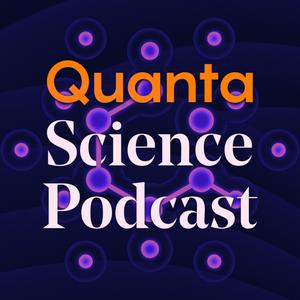 Quanta Science Podcast
Quanta Science Podcast
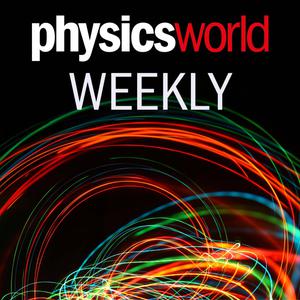 Physics World Weekly Podcast
Physics World Weekly Podcast
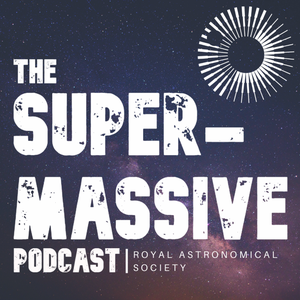 The Supermassive Podcast
The Supermassive Podcast
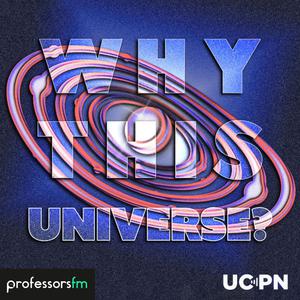 Why This Universe?
Why This Universe?
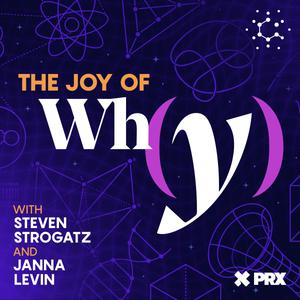 The Joy of Why
The Joy of Why
 Ask a Spaceman!
Ask a Spaceman!